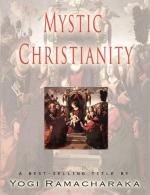Let us begin the Mystic Narrative of Jesus the Christ, as it is told to the Neophyte of every Occult Order, by the Master Instructor, by a recital of an event preceding his birth by over one year.
In Matthew 2:1-2, the following is related:
“Now when Jesus was born in Bethlehem of Judea, in the days of Herod the king, behold, there came Wise Men from the East to Jerusalem, saying, Where is he that is born King of the Jews? for we have seen his star in the East, and are come to worship him.”
In these simple words is stated an event that, expressed in a much more extended narrative, forms an important part of the Esoteric Teachings of the Mystic Brotherhoods, and Occult Orders of the Orient, and which is also known to the members of the affiliated secret orders of the Western world. The story of the magi is embedded in the traditions of the Oriental Mystics, and we shall here give you a brief outline of the story as it is told by Hierophant to Neophyte—by Guru to Chela.
To understand the story, you must know just who were these “Wise Men of the East”—The Magi. And this you shall now be taught.
THE MAGI, OR WISE MEN.
The translators of the New Testament have translated the words naming these visitors from afar as “the Wise Men from the East,” but in the original Greek, Matthew used the words “The Magi” as may be seen by reference to the original Greek versions, or the Revised Translation, which gives the Greek term in a foot-note. Any leading encyclopedia will corroborate this statement. The term “the Magi” was the exact statement of Matthew in the original Greek in which the Gospel was written, the term “the Wise Men” originating with the English translators. There is absolutely no dispute regarding this question among Biblical scholars, although the general public is not aware of the connection, nor do they identify the Wise Men with the Oriental Magians.
The word “Magi” comes to the English language direct from the Greek, which in turn acquired it by gradual steps from the Persian, Chaldean, Median, and Assyrian tongues. It means, literally, “wonder worker,” and was applied to the members of the occult priestly orders of Persia, Media, and Chaldea, who were Mystic Adepts and Occult Masters. Ancient history is full of references to this body of men. They were the custodians of the world’s occult knowledge for centuries, and the priceless treasures of the Inner Teachings held by the race to-day have come through the hands of these men—the Magi—who tended the sacred fires of Mysticism and kept The Flame burning. In thinking of their task, one is reminded of the words of Edward Carpenter, the poet, who sings: “Oh, let not the flame die out! Cherished age after age in its dark caverns, in its holy temples cherished. Fed by pure ministers of love—let not the flame die out.”




